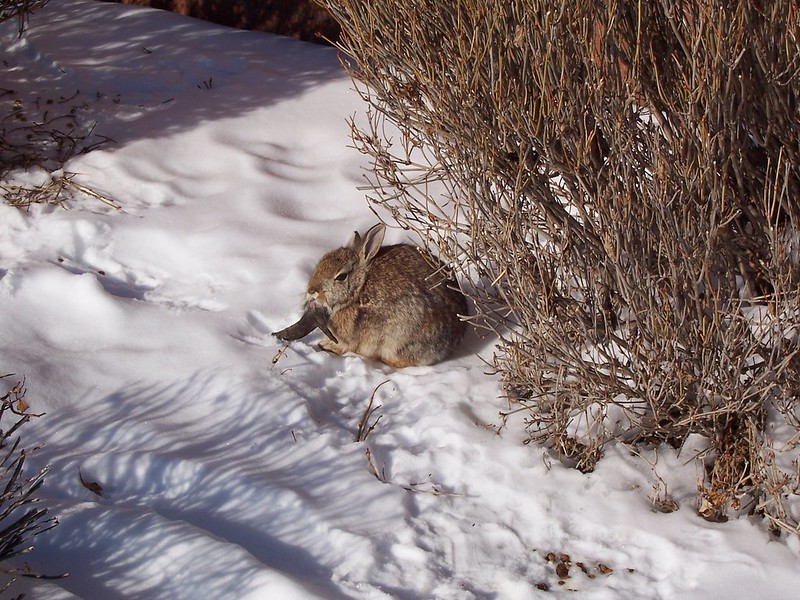Residents across Fort Collins have begun spotting wild rabbits sprouting grotesque, horn- or tentacle-like growths—prompting fears of a full-blown “zombie bunny” invasion.
Wild cottontail rabbits in Colorado are being infected with the Shope papillomavirus (also known as cottontail rabbit papillomavirus), causing wart-like tumors that can elongate into horn-like or tentacle-like protrusions, particularly around the head and mouth, according to AP News.
These growths are made of keratin, the same material as human nails and hair.
While the affected rabbits look straight out of a creature feature, wildlife officials assure the public there’s no cause for alarm for humans or pets. The virus is species-specific and does not spread to humans or other animals.
Colorado Parks and Wildlife has urged anyone who spots these “zombie rabbits” to keep their distance and refrain from touching them.
There are rabbits in Fort Collins, Colorado, that have been observed with horn-like , tentacles growths due to the Shope papilloma virus (SPV).
Here’s a breakdown:
1. Shope Papilloma Virus (SPV): This is a real virus, specifically a papillomavirus, that affects rabbits. It… pic.twitter.com/8M0wdDlGTV
— PeacefulCanvas (@PeacefulxCanvas) August 12, 2025
9News reported:
Recently residents in southeast Fort Collins began noticing the unusual-looking rabbits, including 9NEWS Northern Colorado reporter Amanda Gilbert. Susan Mansfield said she saw a rabbit with black spines or “quills” around its mouth.
“It looks like it was black quills or black toothpicks sticking out all around his or her mouth,” Mansfield said. “I thought he would die off during the winter, but he didn’t. He came back a second year, and it grew.”
One person described the rabbit as having “a scabbiesh-looking growth over their face.”
According to wildlife officials, the growths are caused by a virus that results in wart-like protrusions on the rabbit’s face or head. The condition is similar to benign cancerous cells and has no known cure, CPW said.
Wildlife officials emphasized that while the virus can spread between rabbits, it is not known to be contagious to humans, dogs, or other wildlife. They said it doesn’t hurt the rabbit, unless it grows on sensitive areas like their eyes or mouths.
Read the full article here


